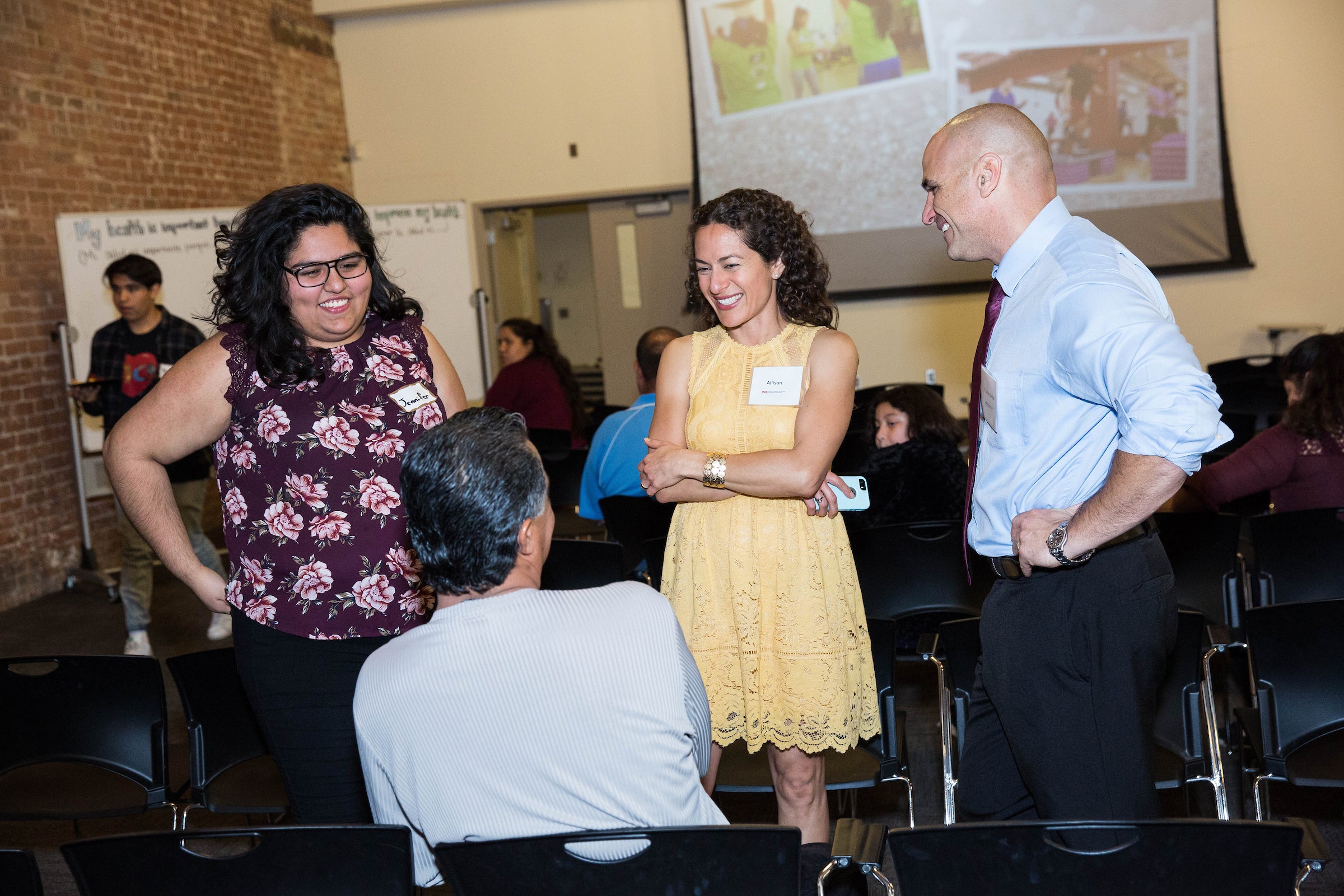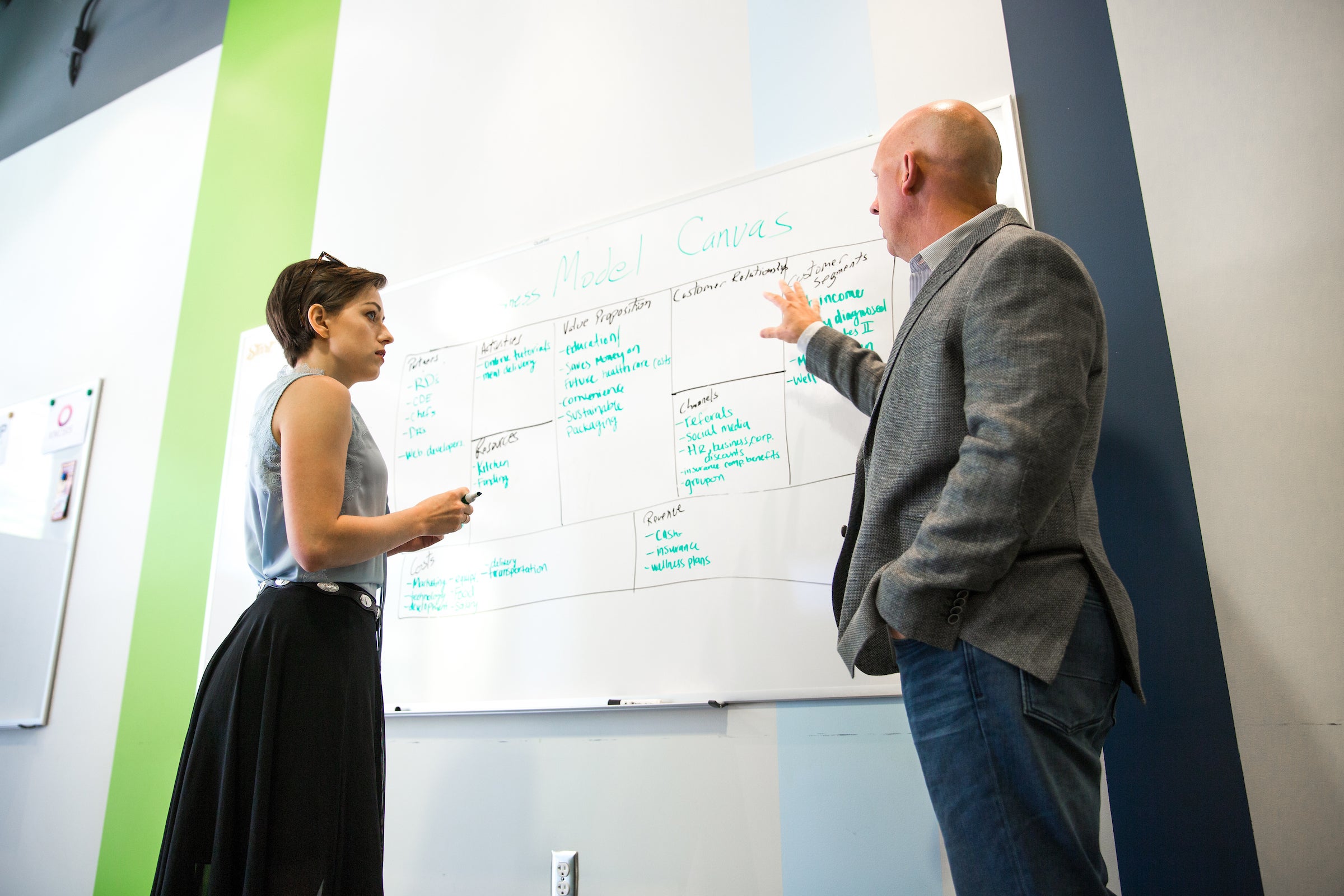'Health Care Without Walls' talk underscores robust suite of community health initiatives

Community-based care is ASU nursing Professor Gerri Lamb’s jam.
Straight out of college, she became a visiting nurse in New York City, where her conviction in the health care approach was solidified.
“In the visiting-nurse service, everything takes place in the community,” Lamb said. “You visit people in their homes, and you see how most of health care happens in the home and the community. For me, it was the beginning of a very deep belief that that’s where health care needed to be delivered.”
It should come as no surprise, then, that when Lamb found herself in the audience at a 2018 conference, the words of Susan DentzerIn addition to serving as president and CEO of the Network for Excellence in Health Innovation, Susan Dentzer is the editor-in-chief of Health Affairs, a premier health policy journal., president and CEO of the Network for Excellence in Health Innovation (NEHI), describing an actual plan to shift the axis of the American health care system into community settings had her rapt.
“We’ve been saying health care will move out of the hospital and into the community for years,” Lamb said. “Susan Dentzer is serious about it. She has the vision — and the detail with real-world examples. Imagine making health care more accessible using all kinds of technology from telemedicine to AI to drones.”
Lamb pounced on the opportunity and invited Dentzer to share that vision with students at Arizona State University’s College of Nursing and Health Innovation.
“Health Care Without Walls: What It Means for Practice, Education and Training” will take place at 3 p.m. Friday at the Health North Auditorium on ASU’s Downtown Phoenix campus. Presented by ASU’s Center for Advancing Interprofessional Practice, Education and Research (CAIPER), the event is free and open the public; registration is required.
From left: Study participant Jennifer Hernandez; Allison Williams, program manager of research at the Center for Health Promotion and Disease Prevention; and Associate Professor Gabriel Shaibi talk with a community member during an event to discuss the results of their community-based diabetes intervention on the Downtown Phoenix campus on March 15, 2018. Photo by Deanna Dent/ASU Now
As Lamb said, the need for a shift to community-based care isn’t news to those in the field — least of all those preparing students for the future of health care at the College of Nursing and Health Innovation.
“We’ve been predicting that things are moving to the community probably for over 20 years, and we’re seeing it happening now,” said Associate Dean and Clinical Professor Katherine Kenny.
Appropriately, the philosophy is already deeply embedded in the college’s curriculum. College of Nursing and Health Innovation students accumulate 1,000 hours of clinical preparation over two years during their undergraduate years. While some of those hours are gained in more traditional acute-care settings, they also include practical experience in the community providing care at homeless shelters, federal health clinics and other such facilities that cater to underserved populations.
Doctor of nursing students accumulate their 1,000 hours over the course of a program that involves hands-on care for patients living at home, receiving care at federally funded clinics or living in rural areas. And students on the integrative health degree track focus on treating each patient holistically, learning firsthand from community health care professionals as varied as acupuncturists to counselors.
“The U.S. is looking at the health of other countries compared to ours and realizing that community-based care, including health promotion and prevention, is really where our health system should be moving to, knowing there will always be chronic diseases and other health issues that require acute care and hospitalization,” Kenny said.
Erin Washbon meets with the director of the HEALab, Rick Hall, at the September 2017 soft launch of the entrepreneurial space. The startup incubator is geared toward health and wellness students on the Downtown Phoenix campus but is open to students of any major, as well as faculty, staff, alumni and the general public. Photo by Anya Magnuson/ASU Now
Beginning this year, the college is floating an ambitious goal for every one of their students to have an interprofessional community-based experience during their education. And there’s certainly no shortage of opportunities.
The Student Health Outreach for Wellness (SHOW) initiative is the perfect example. The tri-university, student-run service-learning program serves such vulnerable populations as those experiencing homelessness, those from low-income communities and those recovering from substance use.
With an emphasis on interprofessional health care delivery, SHOW welcomes students from all disciplines — including nursing, psychology and social work — to provide more holistic care to patients.
On the research side of things, the projects coming out of the College of Nursing and Health Innovation share cross-disciplinary and community-focused commitments. They run the gamut from diabetes interventions that partner with the local YMCA to music-based interprofessional interventions for aging adults.
“What I see a lot of folks doing across ASU is working together to understand a problem or phenomena, and then designing interventions to address those problems and challenges,” said David Coon, College of Nursing and Health Innovation associate dean of research. “They’re working together to make change by transforming society, breaking down the walls of where health care is delivered.
“Many times,” he added, “that takes both innovation and entrepreneurship.”
To that end, the HEALab (Health Entrepreneurship Accelerator Lab) was launched in September 2017 to serve as an incubator for health- and wellness-centric businesses and products.
“What Susan Dentzer is talking about is closely aligned with our priorities at ASU,” Lamb said. “The message of health care without walls is about social embeddedness, research that is relevant to the community and the application of innovation and technology; it’s really transformative and has huge implications for how we educate students, how we collaborate with clinical partners and how we use technology across ASU.
“She’s connecting so many things we’re already doing and putting them together in a very doable, important model of health care for the future.”
Top photo: ASU doctoral student in advanced nursing practice Reena Pathak asks her patient questions during their morning meeting at the Student Health and Outreach Wellness clinic at Crossroads residential and outpatient substance-abuse treatment program in Phoenix. Photo by Deanna Dent/ASU Now
More Health and medicine

ASU's Roybal Center aims to give older adults experiencing cognitive decline more independence
For older people living alone and suffering from cognitive decline, life can be an unsettling and sometimes scary experience.Arizona State University is out to improve that experience.Two projects…

Dynamic data duo advances health research
The latest health research promises futuristic treatments, from cancer vaccines to bioengineered organs for transplants to medical nanobots. While these technologies may one day be…

New study reveals high levels of toxins in seized cannabis from Arizona and California
A recent study conducted by researchers from Arizona State University has uncovered alarming levels of Fusarium mycotoxins in illicit cannabis samples seized in Arizona and California.The study found…



